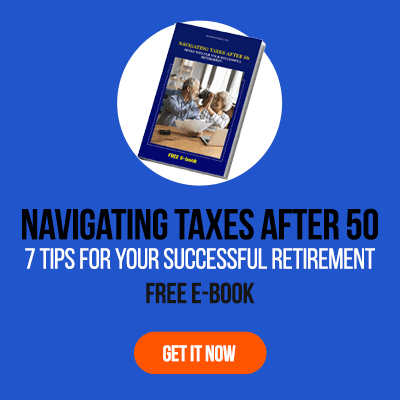…Are you afraid that eventually, you are going to run out of money?
Running out of money during their retirement is one of the main concerns the majority of people who leave the workforce have. And if we really think about it, they’re actually right because healthcare is not cheap at all.
This is why experts recommend for people to plan way ahead of their retirement so that they can have plenty of money to use and not go into panic mode. But that doesn’t mean financial planning is going to completely knock off the risk of going broke, but it can only make it a lot less likely to happen.
Moreover, having a good plan in mind will allow you to have the freedom that you want and be able to enjoy your retirement as much as possible. Isn’t it better to be a bit more careful rather than spend the next 20 or 30 years worrying that you might run out of money at some point?
So if you’re one of those people that are completely scared about what’s going to happen in the future, we’ve prepared a guide that will help you better understand what you have to do. With that being said, here are 6 tips for making your money last as a retiree.

1. Don’t forget about inflation
The rate at which prices increase over a certain period of time is known as inflation. This is often measured in broad terms, such as the general rise in prices or the rise in a country’s cost of living.
In simpler words, this means that the prices you know now might be totally different in a few years. We can say that everything will get more expensive as you age. In addition to that, inflation will destroy your buying power and put a lot of pressure on your spending.
So don’t neglect the future consequences of inflation, if you want to be sure that you won’t run out of money in retirement. The best thing you can do is to have a plan that you can count on in the future.
Have you ever wondered how much you really know about inflation? I’m asking because I thought I knew a thing or two about economy and inflation, but after I read a book called “Inflation: What It Is, Why It’s Bad, and How to Fix It,” I soon realized there’s so much more than meets the eye. If you want to know more, you need to try this book, now in the audio version, too!
2. Work a bit more
Everyone has different expectations when it comes to the age when they want to retire. Some say that they want to do it by the age of 50 so that they can have plenty of time to travel and to do all the things they want but didn’t get a chance to do, while others say that they love their jobs so much, that they want to work for as long as their health and passion allow them.
Whichever category you might find yourself in, you should know that waiting just one extra year to retire can significantly improve the standard of living for the second part of your life. Your Social Security, for instance, will be approximately 8% higher each month for the rest of your living years and that’s simply by waiting just an extra year to claim its benefits.
Besides that, your retirement capital will have more time to grow. Given the fact that you want to be sure that you won’t run out of money during retirement, working an extra year will help you have more money in the long run.
Some people even say that a slower transition out of the workforce might be great for the majority of Americans who are not sure about what they want to do. If you are able to take a new role that comes with less responsibility, for example or more free time, you might find this combination between working and retirement just great for you.

3. Don’t neglect your health
…Did you know that it’s actually crazy expensive to be sick?
Besides making you feel absolutely at your worst, with no energy and life desire, it will also make you take a lot of money out of your pocket. And that is not helpful when you want to make sure that your money will last you as long as possible.
With a little extra care and regular medical check-ups, plenty of chronic health issues can be prevented. Making healthier choices, such as eating clean foods and having an active lifestyle throughout your life surely can decrease the chances of suffering from health conditions such as diabetes, high cholesterol, high blood pressure, and arthritis.
Going to regular screenings and check-ups won’t be cheap either, but it will surely be more affordable compared to getting treatment for any severe health conditions. It’s really important to take care of your health and not just moneywise. A healthy lifestyle will also help you live a happier life, which means having more fun in your retirement.
4. Don’t forget about taxes
Just because you’ve decided to retire doesn’t mean that your taxes will retire at the same time as you. There are plenty of cases in which tax planning in retirement might get even more necessary and complicated than it previously was.
In conformity with the 4% rule, you will need no less than $1,000,000 to produce just $40,000 in revenue. And before you ask, no, we’re not even discussing taxes here. Therefore, taking out $40,000 from an IRA or 401(k) account is worth less (after taxes) than taking the same amount out of a brokerage account, which is worth even less than taking out a comparable amount of tax-free income from a Roth IRA.
If you have further questions and you don’t exactly know what the best thing to do is, you can always talk to a professional, such as a Certified Financial Planner or a great CPA, to help you with the best tips on how to make the most out of your money and also give you answers regarding your retirement tax planning questions.

5. Keep your fixed expenses to the minimum
When you want to be sure that your money will last you as long as possible, it’s a must to cut down on expenses you don’t actually need. Of course, you can’t go without housing, food, transportation, or insurance and debt payments, but there are a few things you can do to save some extra cash.
Instead of getting in the car and driving to a place that’s somewhere close to your home, you can choose to bike, walk, or use public transportation, so that you can save the extra money you would’ve paid for gas otherwise. Another tip is to only purchase things that you absolutely need, especially when you go to the grocery store.
Don’t go food shopping when you’re hungry, because you’re more likely to spend more and make unhealthy choices (and those yummy and bad foods are not good in the long run, as we’ve previously discussed in tip no 3).
If you’re single and you also have single friends, you can live together like the women in the “Golden Girls”. It might be hard at first, but you’ll save a lot of money on utilities and you’ll always be sure that you have the people you love nearby.
6. Make the best out of your Social Security benefits
If you’ve read any of our articles before, you already know that we’ve discussed Social Security benefits multiple times, but it’s really important to understand it! Many retirees find it appealing to claim their advantages too early, but that’s not helping them in the long run.
If you start claiming your Social Security benefits too early you’ll actually reduce the advantages you have now, as well as those from the future. Besides that, it means that you’ll be making fewer cost-of-living changes when you get older and when you might really need them. And if you really think about it, do you need that extra money now, or will you need it more when you get a bit older?
Long story short, the longer your life expectancy is, the more likely you are to run out of money during retirement. Think of your Social Security advantages as a longevity allowance. It is a type of income stream you’re not able to outlive.
…If you need more tips on how you can make more money as a retiree, we have a great article for you. Check it out: 7 Ways to Make Extra Money in Retirement




















One Response
I’m not drawing my SS at the present time, however, I’m drawing a widow’s check, does that make a difference?